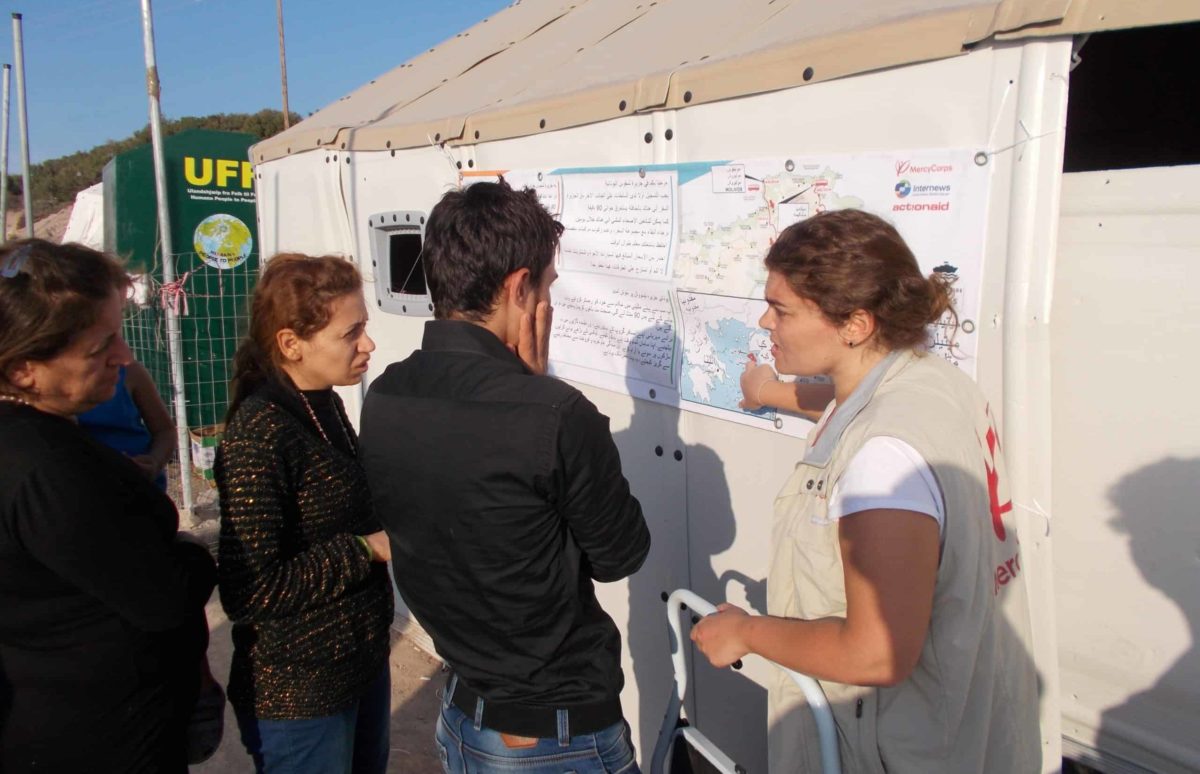
When people are fleeing conflict or environmental or economic devastation, Internews helps them get information in their language and through media that can reach them where they are.
Bangladesh
- Rohingya Refugee Response (2017-1019): As a response to the Rohingya Crisis, Internews conducted an initial Information Needs Assessment in October 2017. Based on the findings of that assessment, in early 2018, Internews set up a rumour tracking project called ‘Flying News’ (the Rohingya word for rumour translates as ‘Flying News’) in Cox’s Bazar, Bangladesh. This project worked in consortium with Translators without Borders (TWB) and BBC Media Action, as part of a Common Services platform for the humanitarian response.
Central African Republic
- Emergency Newsroom (2014-2015): This small Internews project worked to establish an emergency multi-confessional newsroom and radio in Bambari in coordination with local community actors and leaders to cater to the population’s urgent information needs; provide humanitarian agencies and NGOs with a medium to broadcast peace, social cohesion, protection and hygiene/health messages; and encourage the return to normality by creating channels of communication between all communities and actors on the ground.
Chad
- Darfur Refugee Response (2005-2012): Starting in 2005, Internews built three humanitarian radio stations in Eastern Chad to help those fleeing the violence in Darfur to receive the critical news and information they needed to survive.
Democratic Republic of the Congo
- Burundi Refugee Response (2016-present): In May 2015, residual tensions from the Civil War in Burundi stemming from the conflict between the Hutus and Tutsis were sparked once again when the Burundian President Nkurunziza was authorized for a third term of office. Internews commissioned an information evaluation in October 2016 for two months, examining the ability to access information in the Burndian camps in the Democratic Republic of Congo, Tanzania and Uganda, as well as the dynamics between refugees and host communities.
Greece
- Mediterranean Migration Response (2014-2016): The goal of the News That Moves project was to improve the quality of timely and actionable information reaching refugees currently in Greece in order to reduce vulnerability and improve protection outcomes.
Kenya
- Refugees in Dadaab (2012-2016): In 2012 Dadaab was the world’s largest refugee camp, with an immensely complex information environment and more than one million Somali refugees. Internews conducted research in 2011 and 2013 to identify major communications gaps, and found that radio was the most trusted source of information in the camps.
Mali
- Humanitarian Information Service (2013): The Mali Humanitarian Information Service (HIS) is a platform for interactivity and dialogue between humanitarian organisations and local audiences. The project helps internally displaced people to get access to vital, life-saving information and improve two-way communication between themselves and aid providers.
- Migration in Gao (2018): In September 2018 Internews conducted an Information Needs Assessment of people on the move in the northeastern region of Mali, more specifically in the city of Gao. The assessment maps information needs and habits of migrant communities in Gao to better understand how these individuals and communities receive information, which sources they trust, and what kind of communication channels or platforms they use.
Pakistan
- Displaced Populations (2009-2011): Internews received funding for the Humanitarian Information Project (HIP) in Pakistan to provide information and increase dialogue for people affected by three emergencies over two years. The first two emergencies related to people affected and displaced by military activities in the areas of Swat and Southern Khyber Pakhtunkhwa (KPK).
South Sudan
- Displaced Populations (2013-present): Internews has used its global humanitarian experience and knowledge of the South Sudan context to provide lifesaving information to communities in need. Interventions range from emergency “Radio-in-a-Box” kits, to hyper-local projects such as “Boda Boda Talk Talk,” an audio information program which is played for community audiences via a system of mobile speakers.
- Community Radio (2006-2012): Internews in 2006, launched its community radio project in southern Sudan. Internews took media, in local languages, to ‘information dark communities’ in remote locations for the first time. Located in some of the most challenging regions in southern Sudan, the establishment and maintenance of these stations represented a significant logistical achievement.
Sri Lanka
- Displaced Populations (2007): For 12 months, through July 2007, over 300,000 civilians were displaced by conflict in Sri Lanka. Many of them were living in desperate conditions in internally displaced persons’ (IDP) camps, or with host families. The ability of IDPs to access much-needed aid was greatly constrained by a severe lack of information about relief efforts. Internews’ Lifeline strategy was to produce and disseminate material using a range of platforms.
Ukraine
- Displaced Populations (2015-2018): Internews’ Strengthening Conflict-affected Community Communication for Internally Displaced Persons (SCCC) project supported internally displaced people (IDPs) and communities affected by the conflict in Eastern Ukraine by strengthening communication between these groups and UN/ humanitarian aid agencies, civil society, national and local authorities, and the media.